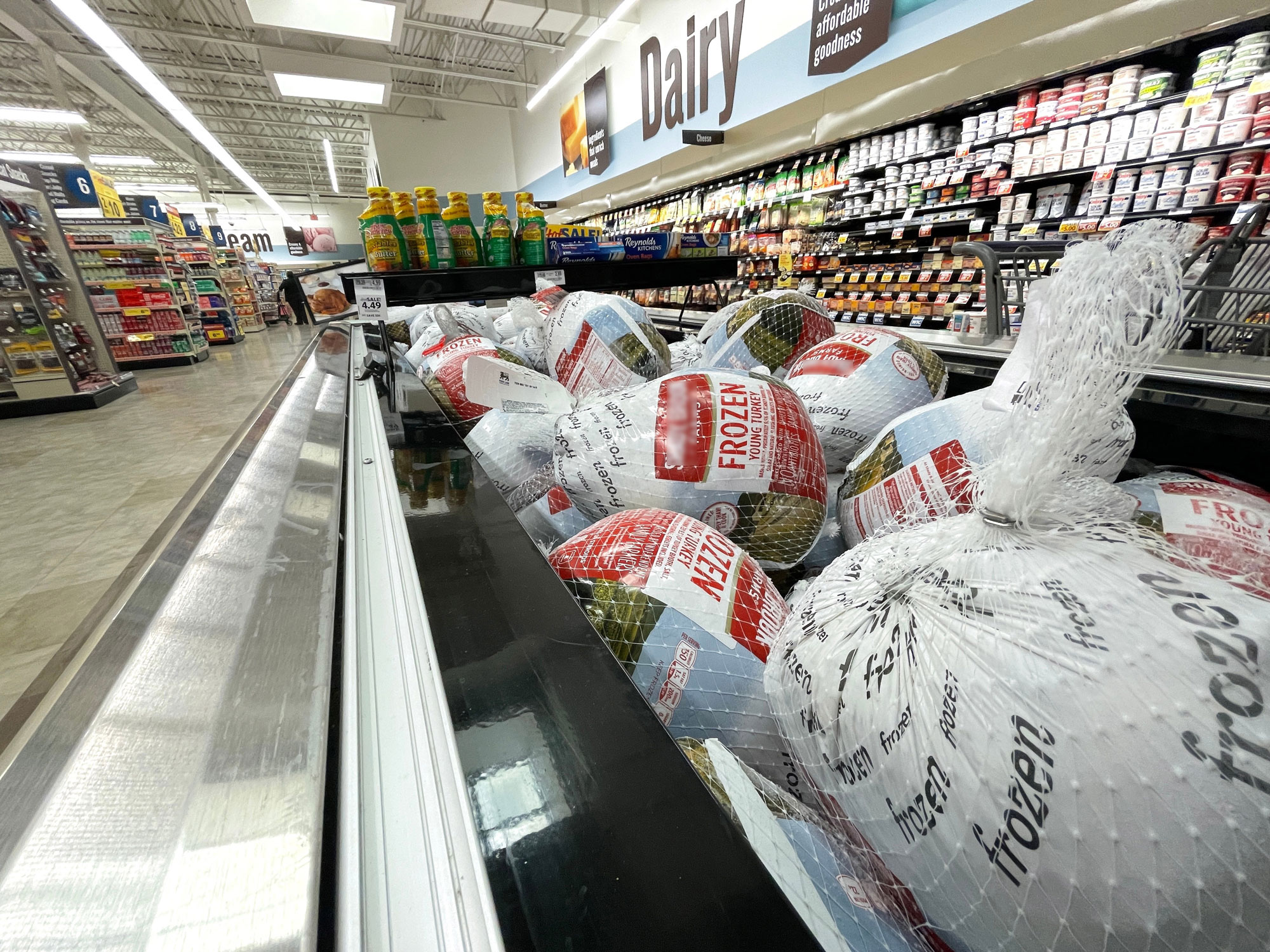Halloween is just around the corner, marking the beginning of a stretch of holidays to end the year. Once all the trick-or-treaters have gone, some people may start thinking about their Thanksgiving plans. Hormel Foods recently published results of a survey, where they asked Americans when they start preparing for Thanksgiving, one of the country’s biggest holidays. In the survey of more than 5,000 consumers, most of them revealed that they begin preparation 2 weeks or more ahead, including menu planning and food shopping. One of the biggest items than people may need to plan for is the star of the Thanksgiving table, the turkey. But how early should you shop for a turkey to get the best price and selection this year?
As with most things tied to a specific date, shopping earlier will usually secure the best selection and price better than shopping later will. Also, given the recent years—where turkeys were in short supply and sold at premium prices—many people might be thinking about it even earlier than 2 weeks ahead. To forecast ahead what turkey availability and prices could be, there are a few key indicators to look at.

The first indicator is the current stock of turkeys in frozen storage. Figure 1 shows frozen turkey stocks over the last four years up to August 2024. The current stock of frozen turkey is slightly higher than last year at this time. This would suggest that retail outlets will have ready access to more turkey going into the holiday season than they did last year. Assuming demand stays close to last year’s levels, this should help keep prices lower, especially early in the buying season (figure 2). However, frozen turkey in storage cannot sustain the overall demand for turkey on its own. This is evidenced by the steep declines seen every year starting in September and October, as retailers start stocking the shelves with frozen product.
Also, fresh birds are in their highest demand around Thanksgiving, so turkey production is centered around having a good supply of birds ready for slaughter in early November. These turkeys are placed on rearing farms in June and July. Even though there was an increase in placement in July this year, overall poult placement (newly hatched turkeys) is down from previous years (figure 3). This could be in response to the higher supplies of frozen birds combined with consumer trends toward frozen products because of cheaper prices and increased convenience. Either way, it foretells a slightly lower supply of fresh birds available this Thanksgiving, which could push those prices higher.

Supply is only one side of the story, though. What about the demand for turkey? Data indicates that Americans are eating less turkey. Turkey consumption has been slowly declining over the years. In 2023, consumption reached about 15 pounds per person per year. Compare that to the increasing consumption of chicken—which currently sits at over 100 pounds—and beef and pork—both at about 50 pounds (figure 4). Lower demand usually brings about lower prices combined with lower future production. However, it is unlikely that the slow decline in annual consumption is a major player in turkey prices this time of year.
Another piece to the turkey-price puzzle is marketing. Oftentimes, local grocers will use turkey as a marque item and a loss leader to get buyers into their store. They may hold back some supply to offer last-minute deals on frozen turkey breasts or whole birds as a way to lure consumers. This could work in your budget’s favor if you get to the store on time. But judging from the frozen storage on hand, these types of sales may be plentiful this year.

The final indicator is a wild card—Highly Pathogenic Avian Influenza (HPAI). Outbreaks of HPAI have devastated commercial turkey flocks over the past few years, resulting in the loss of millions of turkeys, with 1,266,000 lost in 2024 alone. If there were to be significant outbreaks and additional losses of market-ready birds between now and Thanksgiving, consumers could see the fresh- and fresh-frozen-bird market impacted, with lower availability and higher consumer prices.
So, what should you do this year? There is likely little reason to panic buy too early to get the best prices or the best selection of frozen birds or products. You might play it strategically and get good prices on sale items. If you plan on cooking a fresh bird, keep your options open and be flexible in case HPAI problems cause a supply problem. You might consider looking locally for small-farm produced birds, which are less likely to be impacted by supply-driven market swings. Though you may pay more overall, you’d be supporting local farmers, which is always a good thing. Overall, there’s a good outlook in both price and availability for enjoying a home-cooked turkey this Thanksgiving with family and friends.

